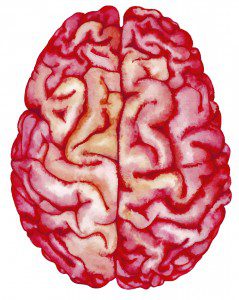By Joseph Kandel, M.D.
 Neurology is the field of medicine that deals with the nervous system; this involves the brain and brain stem, the spinal cord, nerve roots, nerve twigs (peripheral nerves), muscles, and how they interact with everything in your body. It is the nervous system receptors that are responsible for appreciating pain throughout your body.
Neurology is the field of medicine that deals with the nervous system; this involves the brain and brain stem, the spinal cord, nerve roots, nerve twigs (peripheral nerves), muscles, and how they interact with everything in your body. It is the nervous system receptors that are responsible for appreciating pain throughout your body.
Common neurologic disorders include stroke (loss of blood and oxygen to the brain), Alzheimer’s disease and other forms of dementia, Parkinson’s disease, Tremors, movement disorders, and seizures. Multiple sclerosis, sleep disorders and restless leg syndrome, Lou Gehrig’s disease (ALS), and balance and ambulation disorders are also under the umbrella of neurologic conditions. Tumors of the brain and brain stem and spinal cord, neck and back pain disorders, concussion, and pain syndromes are also neurologic problems. Headache disorders, migraines, peripheral neuropathy, and carpal tunnel are a few more of the conditions that are neurological conditions.
What is a neurologist?
A neurologist is a physician who has completed an undergraduate degree, four years of medical school, a one year training program in internal medicine, and then three additional years of specialty training in neurology. Neurologists often act as a consultant to other physicians. At times they are the primary care physician for patients who have neurologic conditions. When treating one of the conditions listed above, frequently patients will contact a neurologist directly to obtain an expert opinion and expedite a diagnostic evaluation and therapeutic treatment program. Neurologists will occasionally recommend surgery, but they do not perform surgery. Following a surgical procedure, it is common for the neurologist to resume care and direct the post operative rehabilitation regimen.
Here are a few case presentations that a neurologist might see:
J.D. is a 44-year-old right-handed electrician who has been experiencing numbness and tingling and in his right hand for the last four weeks. There has not been any injury or trauma, he simply does his usual duties. When he drives to a job site and holds the steering wheel his hand feels like there is electricity running through it. At night, his hand will awaken him from sleep with numbness and tingling.
Upon examination there are classic findings for nerve twig involvement at the right wrist with motor deficits and sensory loss that is consistent with a carpal tunnel syndrome. A diagnostic workup may include imaging of the wrist, electrodiagnostic studies; treatment might include a neutral wrist splint at night, anti-inflammatory medications, occupational therapy and possibly even injections at the wrist or even surgical release of the inflamed nerve.
G.K. is a 76-year-old white female who has a history of tobacco use, elevated cholesterol, sedentary lifestyle, who had a five minute episode of numbness and tingling in the right face, arm, and leg. This was associated with confusion and clumsy speech. These symptoms are certainly consistent with a mini stroke or “TIA” (transient ischemic attack). This may represent a brief loss of blood flow and oxygen to a certain part of the brain. A diagnostic assessment would certainly include evaluation of the blood flow to the brain (carotid Doppler study), MRI of the brain, possibly EEG (a rhythm study of the brain), but also an EKG (heart rhythm study), and an ultrasound of the heart chambers to rule out blood clots (echocardiogram). Laboratory testing may be helpful as well. A treatment protocol would be based on the results of testing, but certainly antiplatelet therapy with aspirin or a prescription medication would be appropriate. If there is an abnormal heart rhythm, blood thinning medications may be necessary.
M.F. is a 19-year-old right-handed, white female who was involved in a motor vehicle accident three weeks prior to her presentation for evaluation. There was a great deal of damage to her vehicle. She did not lose consciousness, but has had persistent neck pain, headache, jaw pain, and right upper extremity pain and weakness since the accident. Her sleeping pattern is completely deranged and she is having nightmares and flashbacks about the accident. Her examination shows spasm in the cervical muscles, triggers at the base of the skull, and weakness and sensory loss in the upper extremity in a classic nerve root distribution. Her diagnostic evaluation could include MRI of the cervical spine, electrodiagnostic studies of the upper extremity, cervical spine x-rays, and possibly neuropsychological testing and even EEG testing. Therapeutic intervention would certainly include physical therapy or chiropractic care, antiinflammatory medication, muscle relaxant therapy, and possibly sleep aids. Injection therapy and pain management may be necessary. Referral to counseling for her posttraumatic stress disorder may be necessary as well.
If you or someone you know has a neurologic condition similar to one of those listed above, contact Neurology Office to find out if you can be helped!
To see the expert therapy team at Neurology Office, call to make an appointment with Dr. Kandel 239-231-1414 (Naples) or 239-231-1415 (Ft. Myers) or check out the web site: www.NeurologyOffice.com










